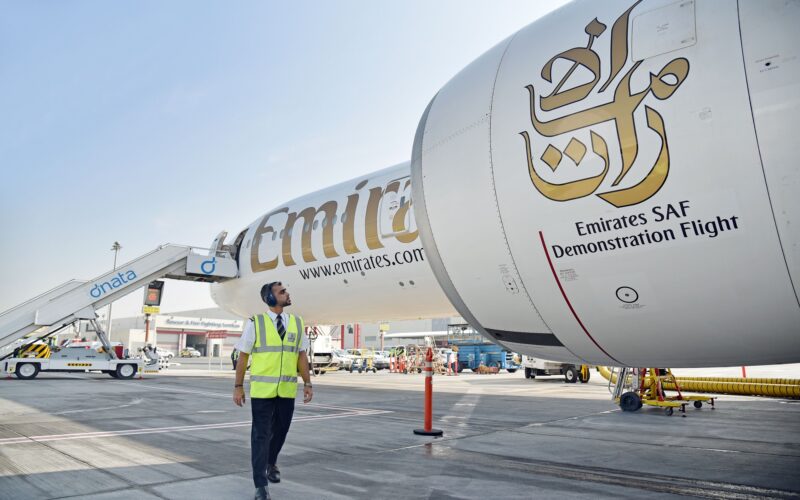Emirates announced that its new aviation sustainability fund will focus on Research & Development (R&D) and not the purchase of Sustainable Aviation Fuel (SAF) or other decarbonization effects, which are considered “business-as-usual” activities.
The Dubai International Airport (DXB)-based airline announced that it will invest more than $200 million into the fund over three years, focusing on various R&D projects to reduce the impact of fossil fuels in aviation.
“We are ring-fencing US$ 200 million to invest in advanced fuel and energy solutions for aviation, which is where airlines currently face the biggest impediment in reducing our environmental impact,” said Tim Clark, the President of Emirates.
“It’s clear that with the current pathways available to airlines in terms of emissions reduction, our industry won’t be able to hit net zero targets in the prescribed timeline,” Clark added.
The airline said the sustainable aviation fund was “earmarked purely for R&D projects, and not for operating costs like the purchase of SAF or carbon offsets to tick regulatory boxes – activities we consider business-as-usual,” the executive noted.
In January 2023, Emirates operated a flight with a Boeing 777-300ER powered by 100% SAF. The demonstration flight took 42 minutes, with the wide-body aircraft departing and landing at DXB.
The airline warned that bio-based SAF is currently in extremely limited supply, citing data from the International Air Transport Association (IATA) estimating that the supply of SAF meets less than 0.1% demand for the alternative fuel globally.
“Emirates’ investment in flying a young and modern aircraft fleet remains its biggest commitment to reducing its emissions. The airline currently has 200 of the latest Airbus and Boeing wide-body aircraft on order, including A350s and 777Xs,” the carrier added.
According to its FY22/23 financial report, the average age of its fleet grew from 8.2 in FY21/22 to 9.2 in FY22/23. Furthermore, it used 46% more jet fuel, while also utilizing 17% more SAF. Emirates’ combined passenger and freighter fleet CO2 intensity was 0.783 kilograms of CO2 per tonne-kilometer (TK) in FY22/23, compared to 0.815 kg CO2/TK in FY 21/22.

